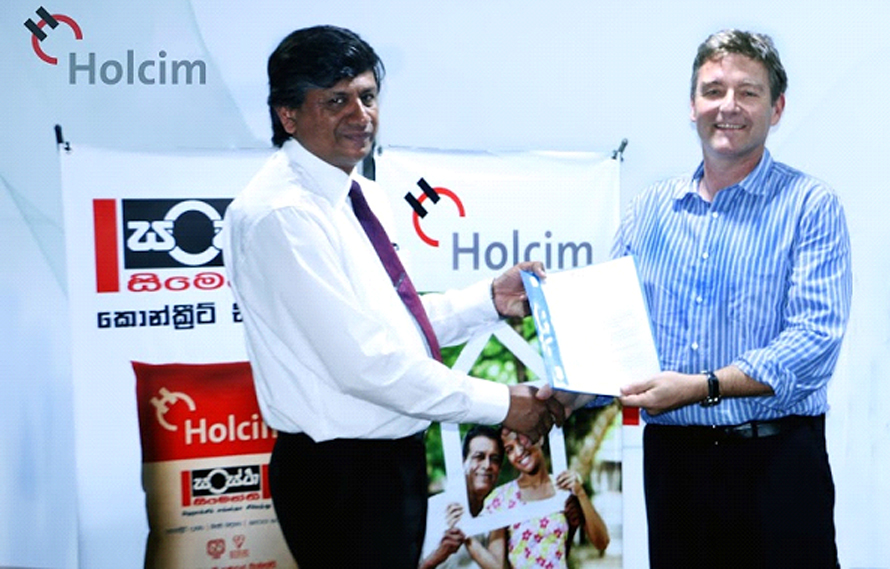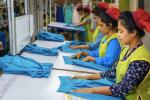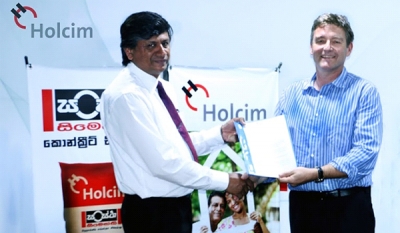The programme, which focuses primarily on improving construction skills of housing beneficiaries and local artisans, will span a period of 6-8 months. Implemented through Holcim’s Corporate Social Responsibility programme, this initiative is valued at more than 2 million Sri Lankan rupees. The project, entitled ‘Training on Beneficiary Capacity Building’ (BCB), is aimed at improving vocational skills of housing beneficiaries who are rebuilding their homes through the ‘Homeowner Driven’ reconstruction methodology adopted by UN-Habitat.
Speaking at the event CEO of Holcim (Lanka), Mr. Philippe Richart commented, “It is indeed a privilege to partner UN Habitat for such a worthy cause. The project aims to improve basic construction skills, including site planning, selection of suitable construction materials, the use of environmentally responsive construction methods and quality management.
The target participants will include key stakeholders in the construction process including community leaders and masons. UN-Habitat Technical Officers will be trained as trainers to impart technical knowledge to the homeowners. Further support to the housing project will include the provision of building materials for vulnerable families who are facing difficulties in completing construction of their houses, additional support to beneficiaries who are adopting environmentally sustainable construction techniques and assistance with reconstruction of selected community infrastructure. At Holcim we are fully committed towards improving the livelihood of all Sri Lankan’s and to be a part of such a valuable project is immeasurable.”
Under the “train the trainer” programme, 140 UN-Habitat technical staff will be trained by Holcim (Lanka) to perform as trainers. The community awareness programme will be conducted with over 1,500 beneficiaries trained on managing construction, environmentally sustainable alternative construction techniques, demonstration of building material production including quality control, and selection of good quality construction materials. The third phase of the programme will improve the skills of 150 local master masons in 15 Divisional Secretariats in the Northern Province.
Holcim (Lanka) will also supply 1,000 cement bags to vulnerable families who adopt environmentally sustainable technologies in construction, while facilitating the construction of drinking water wells in selected water scarce villages.
Commenting on the project, UN-Habitat Sri Lanka’s Chief Technical Advisor, Tim McNair, stated “The on-going reconstruction process in the North has many challenges including the price escalation of building materials and lack of skilled construction workers. This initiative with Holcim will help address both these issues and we look forward to a long and fruitful partnership”.
UN-Habitat is presently implementing housing programmes funded by multiple donors including the Government of India, the European Union (EU), Government of Australia and the Swiss Agency for Development and Cooperation (SDC) in the Northern and Eastern Provinces of Sri Lanka. In addition, community infrastructure programmes funded by the Government of Japan, the EU, Government of Australia and SDC are in progress to complement the housing projects and to contribute to holistic village development in the project locations. It is estimated that by 2015, over 30,000 houses will be constructed through UN-Habitat’s post-conflict recovery programme.
Caption - Programme Manager for UN-Habitat Sri Lanka, Mr E.M.S.B Ekanayake exchanging the partnership agreement with CEO of Holcim (Lanka), Mr. Philippe Richart
























